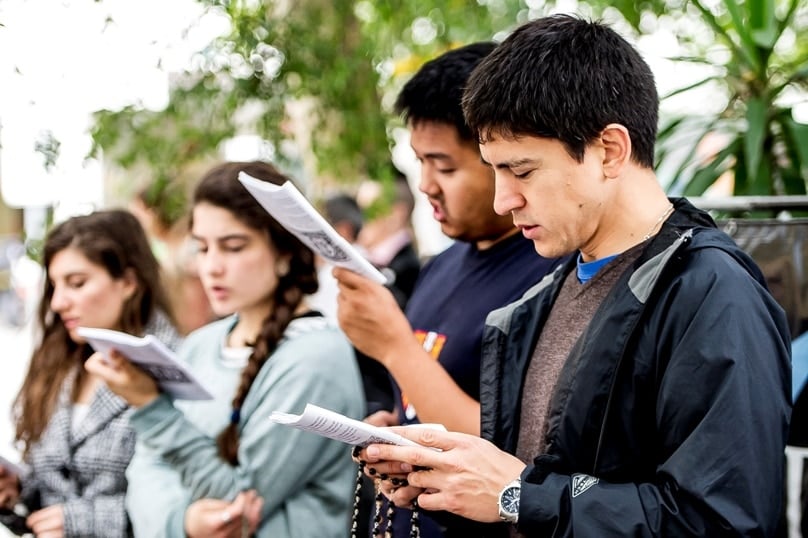
I remember speaking to someone whose job it was to teach the English language. She told me it was very difficult to explain Australian slang, because the literal meaning of the words is not even close to how they are used in common parlance.
For example, an Aussie describing something as ‘cactus’ is rarely referring to the plant, but is instead saying something has been rendered completely unusable.
The real meaning of a word and how it is used in practice can, at times, be miles apart and it is difficult to explain any connection between the two to someone new to Australia.
It’s not only our language that presents problems to recently arrived migrants.
A couple of weeks ago, it was announced that Australia would renew its citizenship test.
The new test requires any would-be citizen of this great country to achieve 75 per cent on their test, as well as answering all five questions relating to Australian values correctly.
The 75 per cent pass mark was already in place; what has changed is the Australian values component.
I have to confess to a fair amount of curiosity as to what these Australian values, for which prospective Aussies now have to study and get full marks if they are going to call Australia home, actually are.
The new government booklet, Our Common Bond, has the answers.

The first value named is ‘Commitment to the Rule of Law’ and is described as all Australians being protected by the law, equally. I’m not sure, but I think this would probably best reflect recent experience in Australia if the word ‘equally’ was replaced with ‘eventually.’
The next is ‘Freedom of Speech’ which is described as the ability for people to express their ideas freely, within the bounds of the law. It is said to allow public or private discussion on social and political matters, the ability to write and speak about any matter, and to discuss our ideas with others.
The sample question accompanying this particular value asks: “Which of these statements best demonstrates Australian values about freedom of expression?” and provides three options, (a) Everyone can peacefully express their opinions within the law; (b) People with different views from me need to keep quiet; and (c) Only approved topics can be discussed.
While I’m sure that the “correct” answer is (a), it seems to me that (b) and (c) are actually more accurate in terms of current practice.
How many Australians, high-profile and not, have been subject to disciplinary and discriminatory action because they expressed a view about marriage?
How many Australian company or sporting executives would pass this test, including so many that bear symbols of Australia on their logos or jerseys?
Freedom of speech also includes the right to peacefully protest against the actions of the government, naming peaceful public protest as “an essential part of democracy.”
It is interesting that it is the protest against government action (and not against racism, climate change or other causes) that is seen as essential to democracy.
Reading this, I couldn’t help but reflect on what is happening in Victoria and whether those enforcing protest restrictions would pass this test.

Then we come to freedom of religion and the related right of freedom association, and are assured by the handbook that “religious intolerance is not acceptable in Australian society.”
I thought about the fact that in New South Wales, it is still perfectly legal to discriminate against a person on the basis of their religious beliefs or activity, including by refusing to provide them with goods, services or accommodation, simply on the basis of their beliefs.
I thought about the active campaign to ensure that any law seeking to remedy this unequal treatment is voted down in parliament.
I thought about the relentless campaigns to push religion out of the public square, and I wondered whether prospective Aussies, particularly who have come here from countries where religious practice is common, would agree that religious freedom is an ‘Aussie value.’
We also have values such as equality of all people under the law, equality of opportunity and a ‘fair go,’ mutual respect and tolerance.
While these are good values to have, I am not sure that we can, hand-on-heart, say that we do a good job on these either.
It seems to me that the ‘Australian values’ listed are more aspirational than anything else.
This can be a positive thing: it is always good to speak of high ideals and encourage people to strive for them, but we also want to avoid expecting a different standard of behaviour from those who aspire to be Australian than we do from those who are already.
If we, as people blessed to already be Australians, fail the Australian values test we ask of others, then we’re all cactus.
Related Articles
